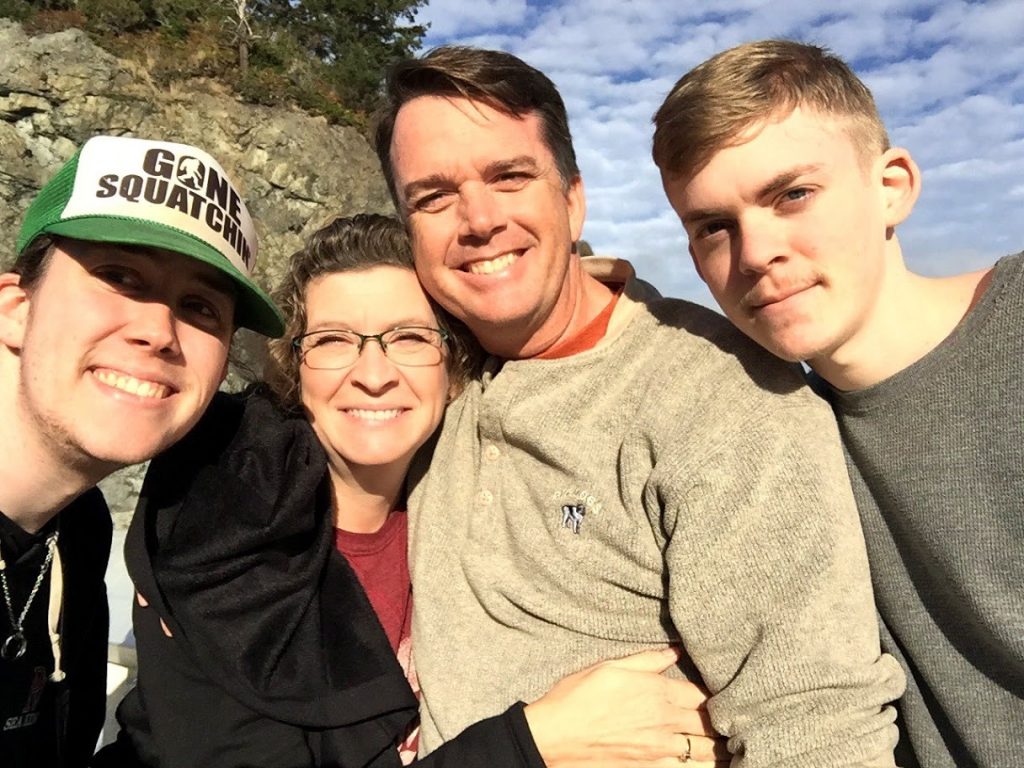Don’t Put Your Shoes On
Hey there. Remember me? I’m sorry that it’s been a while.
I have sat at my computer over and over and stared at the screen. I have typed and deleted, typed and deleted.
I have pulled out the old school pen and paper. I have written and scratched it out, written and scratched it out.
I realized today that the reason that I haven’t been sharing as much is that I’m finding myself revisiting my old nemesis, and it makes me very uncomfortable. Coming in at number two on the list of the Five Stages of Grief:
Anger.
This one is a toughie. It just feels so wrong. Sadness is easy to justify. Losing a child is sad. There’s no way around it. When I tell people that I lost my son to suicide, nearly everyone has the same reaction. “I’m so sorry. That breaks my heart.” I have never had anyone say, “That is infuriating.”
But it is. It is absolutely infuriating.
Anger scares me, though, because I’ve seen what prolonged anger can do to people. Not too long after we lost Trevor, my husband and I went to a support group for people who have lost children. I sat and cried throughout the entire two-hour meeting, and I remember very little about it, except for one woman who was there. Her son had gotten cancer, and had been gone for fifteen years, and she was still angry. She was angry at the world. She complained that no one came around anymore, and she felt very alone. I could tell that everyone in the meeting was accustomed to her, and they listened politely but didn’t respond. Her support group didn’t even know what to say to her. I remember getting in the car and turning to my husband and saying, “That poor woman is holding on to so much anger that she has driven everyone away. I don’t want to be like that.”
Yet here I am again. I’m smack dab in the middle of anger.
Trevor has been gone for four years now, and I’m so mad. I’m not mad at him. I’m not saying it would be wrong to be mad at him, and I can understand why people might be angry with their loved ones who attempt or complete suicide. I just truly feel like the choice was out of his hands.
I’m angry at the illness that took him. I’m angry that his mind was so clouded that he couldn’t see himself as I saw him. I’m angry that his illness was so manipulative that it kept him from talking about it.
I’m angry that we had to struggle so much to get therapy for him. I’m angry that his therapist and psychiatrist couldn’t share how he was doing in his sessions. We had very little guidance about how to treat his illness at home. I know he was technically eighteen years old and was therefore being treated as an adult, but he was my sick child.
I’m angry that I don’t know what to say to those who have lost children, spouses, fiancés, and friends. I don’t have the words to take away their pain, because those words don’t exist. I am helpless as I watch them suffer, just as I was helpless watching my boy suffer.
I’m angry that I don’t know what to say to the people who live in fear of receiving the same phone call that I received four years ago. I hear from so many, and it’s always the same. “I don’t know what to do. What should I do?” and I simply don’t know what to tell them. I don’t know what works, because I loved my son fiercely and I told him that every day. I took him to therapy, and I took him outside and exercised with him. I did everything I knew how to do–everything I was told to do, but it didn’t work.
I’m angry because every time I read about someone Trevor’s age whose parents are excited because they’ve graduated from college, gotten a new job, gotten engaged, had a child, or any of the other wonderful and exciting things that we dream of, my first response isn’t joy for them. It’s an ache for what I’ve lost.
I’m angry that when my friends and family complain about their teens, all I can think of is that they need to be grateful, because it could be so much worse.
I’m angry because the things that people complain about, which are the same things I used to complain about, seem so petty to me now. I’m envious. I want those minor annoyances to be the worst part of my day too.
I’m angry that he didn’t get to grow up and do the things he wanted to do. When he was in elementary school, he decided that when he grew up he wanted to have muttonchops and a handlebar moustache so that he could go to bars and challenge people to fisticuffs. When the hipster style became trendy, he changed his mind, but he still wanted a moustache and a beard. After he died, I read the coroner’s report, and in the description of him, it mentioned that he had a small moustache, and it nearly did me in. When I think about it even now, my stomach drops, my eyes well up, and my face gets hot just like it did that day. I’m so mad that he didn’t get to have his beard. He was so close.
I’m angry that the worst part of my day, every day, is that I wake up and realize that I have to live another day in this world without my son.
I’m angry that we have had yet another high-profile suicide with the loss of Chesly Kryst. She chose the same method of suicide as my sweet boy and reading about it takes me back to the day we lost him. And yet again, I’m reading comments talking about how maybe now things will change. Here we are talking about it again, but what are we DOING about it? Thoughts and prayers are OK, but they don’t build mental health facilities. They don’t pay for school counselors. They don’t train mental health care workers.
I’m angry that there is still so much ignorance when it comes to depression. Every time I read a post about tossing out the medication and taking a walk outside, I want to scream. That kind of talk is so harmful. It minimizes mental illness, and it shames the people who need the medication in order to function. If you are sad, then yes, a walk outside can be helpful, but if you are depressed, it’s so much more complicated than that.
Sadness is an emotion. We are sad because something has happened to us to make us feel bad.
Depression is a brain illness. We are depressed because something is wrong with the way our brain functions. When we are depressed, it doesn’t matter what is happening to us. We still feel hopeless. There have been so many comments from people who talk about how successful Chesly was, how beautiful she was, how she had everything, and how could she possibly have completed suicide considering how amazing her life was. It doesn’t make any sense.
EXACTLY. It shouldn’t make sense, because that’s not how a healthy brain works. Her brain was ill. She was not sad. She was sick.
Back when I was growing up, you could still drop in on people unannounced, and my dad would stop at someone’s house to bring them something or give them a bit of news he would say, “Don’t put your shoes on. We ain’t stayin’.”
That’s where I am right now. I’m just visiting with anger again. I have overstayed my welcome at this point though, and I’m getting ready to leave. It’s time.
“Don’t put your shoes on, Anger. I ain’t stayin’.”
Be gentle with yourselves.

